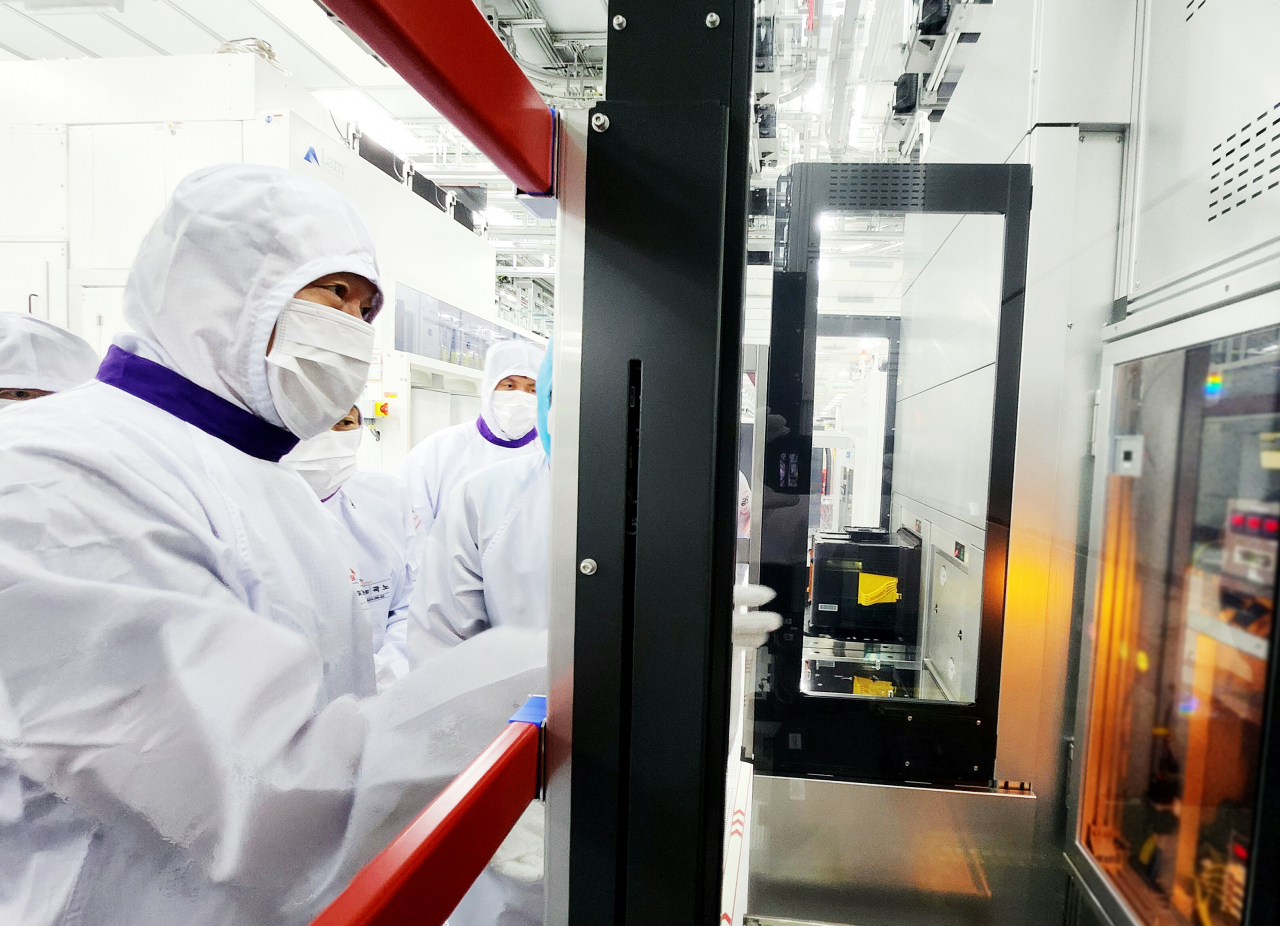 |
SK Group Chairman Chey Tae-won inspects chip production lines at SK hynix's plant in Icheon, Gyeonggi Province, on Monday. (SK Group) |
SK Group Chairman Chey Tae-won called for its memory chip-maker SK hynix to seek next-generation profit models to continuously secure its leadership in the burgeoning artificial intelligence semiconductor market.
“SK hynix is currently recognized in the high bandwidth memory market, but competition will become more intense when the sixth generation HBM4 is commercialized next year,” Chey said upon his visit to the chip maker’s plant in Icheon, Gyeonggi Province, to inspect the HBM production line. “We shouldn’t be complacent about the present and take our next step more seriously.”
The chairman also stressed the necessity for ongoing research and development and effective investment to ensure SK's technological leadership in the AI domain. He further urged employees to join forces and respond strategically in an unpredictable chip business environment.
The HBM production line that Chey examined is a state-of-the-art facility where SK hynix has mass-produced the fifth-generation, eight-layer HBM3E, the industry's highest-performance AI memory, since March.
After inspecting the HBM production line, the chairman discussed future business plans to strengthen HBM, DRAM and NAND technology and product leadership in the AI era, with key SK hynix executives, including CEO Kwak Noh-Jung.
To solidify its AI memory leadership, the world’s second-largest memory chip-maker is accelerating preparations for the commercialization of the next-generation HBM. It plans to mass-produce the 12-layer HBM3E in the third quarter and supply the chip to customers in the fourth quarter. SK hynix is also working on developing HBM4 with the goal of mass production in the second half.
The has been actively involved in strengthening AI semiconductor leadership and building a global cooperation network through meetings with global CEOs of big tech firms.
Chey met with Nvidia CEO Jensen Huang in the US to discuss building a global AI alliance in April, and he visited Taiwan to discuss cooperation with TSMC Chairman C.C. Wei in June. He also spent another two weeks in the US, meeting with CEOs of companies such as OpenAI, Microsoft, Amazon and Intel to solidify AI and semiconductor partnerships.





![[Herald Interview] How Gopizza got big in India](http://res.heraldm.com/phpwas/restmb_idxmake.php?idx=644&simg=/content/image/2024/11/20/20241120050057_0.jpg)

